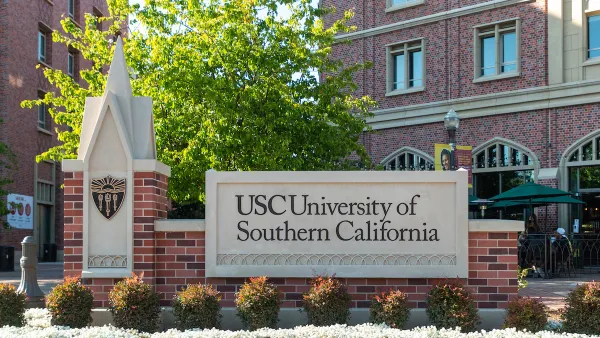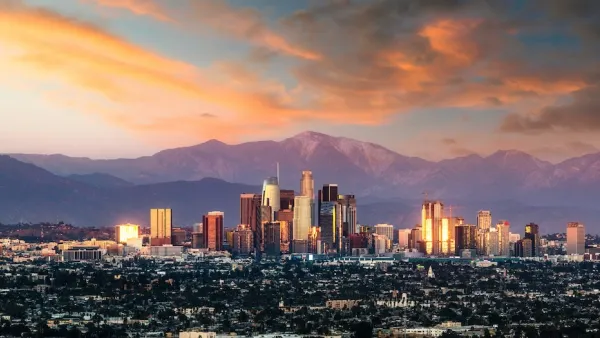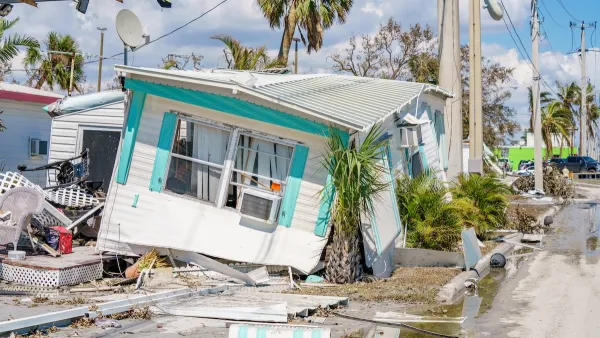Mike Davis wonders if the excesses of Dubai portend a rapidly-warming and deteriorating world of diverging urban fortunes, where a minority live in eco-friendly luxury, while most endure polluted squalor.
"Most of the Gulf city-states are building hallucinatory skylines -- and, among them, Dubai is the unquestionable superstar. In a little more than a decade, it has erected 500 skyscrapers, and currently leases one-quarter of all the high-rise cranes in the world.
This super-charged Gulf boom, which celebrity architect Rem Koolhaas claims is 'reconfiguring the world,' has led Dubai developers to proclaim the advent of a 'supreme lifestyle' represented by seven-star hotels, private islands, and J-class yachts. Not surprisingly, then, the United Arab Emirates and its neighbors have the biggest per capita ecological footprints on the planet. Meanwhile, the rightful owners of Arab oil wealth, the masses crammed into the angry tenements of Baghdad, Cairo, Amman, and Khartoum, have little more to show for it than a trickle-down of oil-field jobs and Saudi-subsidized madrassas. While guests enjoy the $5,000 per night rooms in Burj Al-Arab, Dubai's celebrated sail-shaped hotel, working-class Cairenes riot in the streets over the unaffordable price of bread.
[W]hat if growing environmental and social turbulence, instead of galvanizing heroic innovation and international cooperation, simply drive elite publics into even more frenzied attempts to wall themselves off from the rest of humanity? Global mitigation, in this unexplored but not improbable scenario, would be tacitly abandoned (as, to some extent, it already has been) in favor of accelerated investment in selective adaptation for Earth's first-class passengers. We're talking here of the prospect of creating green and gated oases of permanent affluence on an otherwise stricken planet."
FULL STORY: Living on the Ice Shelf

Analysis: Cybertruck Fatality Rate Far Exceeds That of Ford Pinto
The Tesla Cybertruck was recalled seven times last year.

National Parks Layoffs Will Cause Communities to Lose Billions
Thousands of essential park workers were laid off this week, just before the busy spring break season.

Retro-silient?: America’s First “Eco-burb,” The Woodlands Turns 50
A master-planned community north of Houston offers lessons on green infrastructure and resilient design, but falls short of its founder’s lofty affordability and walkability goals.

Test News Post 1
This is a summary

Analysis: Cybertruck Fatality Rate Far Exceeds That of Ford Pinto
The Tesla Cybertruck was recalled seven times last year.

Test News Headline 46
Test for the image on the front page.
Urban Design for Planners 1: Software Tools
This six-course series explores essential urban design concepts using open source software and equips planners with the tools they need to participate fully in the urban design process.
Planning for Universal Design
Learn the tools for implementing Universal Design in planning regulations.
EMC Planning Group, Inc.
Planetizen
Planetizen
Mpact (formerly Rail~Volution)
Great Falls Development Authority, Inc.
HUDs Office of Policy Development and Research
NYU Wagner Graduate School of Public Service




























